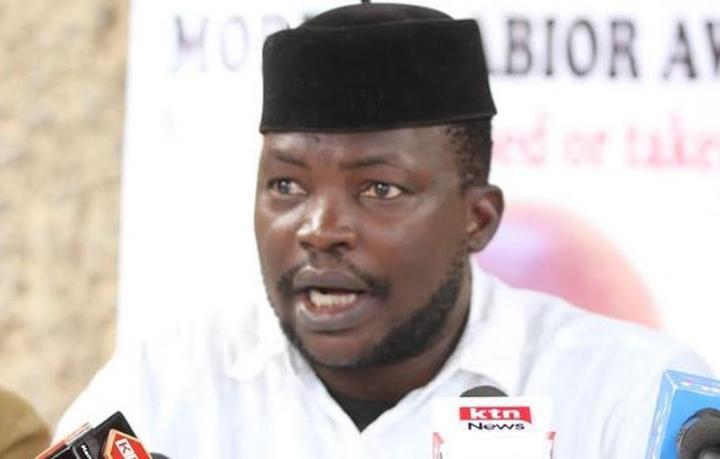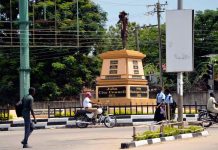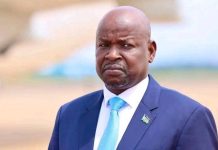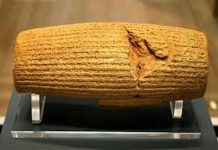Dak Buoth Riek Gaak
Africa-Press – South-Sudan. The tripartite opposition groups that are participating in the high-level mediation for South Sudan, dubbed Tumaini Initiative, are SSOMA, SSPM/A and the new NAS, not forgetting the mighty civil society which also forms part and parcel of the South Sudanese opposition fraternity.
On June 23, 2024, the three leaders of the tripartite opposition authored and released a 2-page statement entitled ‘‘SSOMA and other opposition group position on the high-level mediation Tumaini initiative for South Sudan,’’, which serves as a response to the political narrative often peddled by members and delegates of the de facto government alleging that the tripartite opposition has no new ideas to offer as a solution to our national problems.
On May 9, 2024, after the commencement of the peace talks, and especially after the opposition leaders presented their respective position papers, the delegates of the de facto government went around saying the issues presented by the opposition were not very different from the issues already discussed and agreed in the Revitalised Agreement on the Resolution of the Conflict in South Sudan (R-ARCISS). Thus, they went as far as suggesting that the opposition leaders should just retract and return to Juba to do according to their political whims.
Analytically, the political aspect of the above assertion is to influence the undecided South Sudanese, to shun or take the opposition like people that we often refer to in Nuer language as ‘Neyti thile mi jaleke,’ which meaning people who carried nothing in mind and hand. This sentiment was aimed at watering or shooting down the opposition’s message, that they have ideas and solutions to restore hopes and rescue our country from its perennial and deep-rooted problems. Although the tripartite opposition repeated the same issues which were discussed and agreed in the R-ARCISS so be it, after all the R-ARCISS is dead leaving a legacy of a bloated and dysfunctional government. In this peace talks, if there is a group to be accused of repetition, it is the government that keep recycling the defunct agreement whose mandate elapsed and expired.
On June 19, 2024, the First Vice President of South Sudan Dr. Riek Machar authored a letter to the IGAD heads of states, arguing that R-ARCISS should not be substituted by the proposal of the Tumaini Initiative. Instead, he avers that the Tumaini Initiative should be added or attached purposely to complement the R-ARCISS and not the other way around.
Voltaire once said, ‘‘I disapproved of what you say, but I will defend to death your right to say it.’’ I perused and ascertained a little truth in the aforesaid letter save for the fact that the author is entitled to his opinion as a bona fide member of the Tumaini Initiative.
These incorrect and inconsistent views expose the de facto government as a clique of usurpers who live in denial, owing that they keep referring to failed ARCISS whose four-year tenure elapsed on 25th February 2024.
The declaration of principles signed in Nairobi on 16th May 2024 is a justification and defence against these negative and politicised claims propagated and peddled against the tripartite opposition during the peace mediation.
The principles of declaration rotate and revolve around the acknowledgement that South Sudan is currently facing what I call 6-i.i.i.i.i.i problems of Insecurity, Impunity, Injustice, Inequality, Inequity and Impoverishment to mention but a few.
The political solutions to the six problems are peace-making and permanent constitution that will usher in a new political and social contract pegged on the fundamental freedoms and Human Rights.
As a country, we long for peace and democratic constitution that provides four types of independences namely: independence of the judiciary, legislature, executive, and media as well as the supremacy of the people of South Sudan.
Unfortunately, I clearly imagined that the de facto government came to the mediation table with the ‘‘beggars cannot be choosers’’ mentality. Thus, they think that because some opposition parties begged to participate in the Tumaini Initiative, they cannot decide or choose which direction to go.
But even if some opposition parties did request to be part of the Tumaini Initiative, that ‘‘olive branch’’ should not be abused or taken as weakness, for they asked to be part of this peace process for the sake of our country’s stability.
This unfortunate thinking on government’s side emanated from government’s false belief that they won a military and psychological battles by having already confined and compromised many opposition leaders. So, they want to celebrate this false victory by offering a peace through political accommodations as they did in the past.
The tripartite opposition have made their stance abundantly clear in their joined statement that they did not come to renegotiate, amend and or implement the R-ARCISS period.
The opposition leaders like SSPM leader General Stephen Rolnyang, and Real SPLM leader General Pagan Amum for example risked to come to Nairobi for nothing but to rescue and resuscitate the withered and shattered hopes of the impoverished South Sudanese given that the ARCISS had failed and died four years after it was signed in September 2018.
In conclusion, the tripartite opposition did not come to the Tumaini Initiative to do another round of revitalisation of R-ARCISS as the government wished. As you are aware, the first peace agreement dubbed the Agreement on the Resolution of the Conflict in South Sudan (ARCISS) was signed in August 2015. Again, in 2016, renewed conflict erupted in the state house leading to its collapse and eventual revitalization in September 2018. The truth is, we cannot cling or hang on the 2018 peace accord like dead animals, by referring and relying on R-ARCISS repeatedly.
Going forward, as South Sudanese, we should just utilise the opportunity availed in the Tumaini Initiative to make a new comprehensive and workable peace accord that will lead us to a general election after the new constitution is prepared during the transition period.
Source: The City Review South Sudan
For More News And Analysis About South-Sudan Follow Africa-Press






